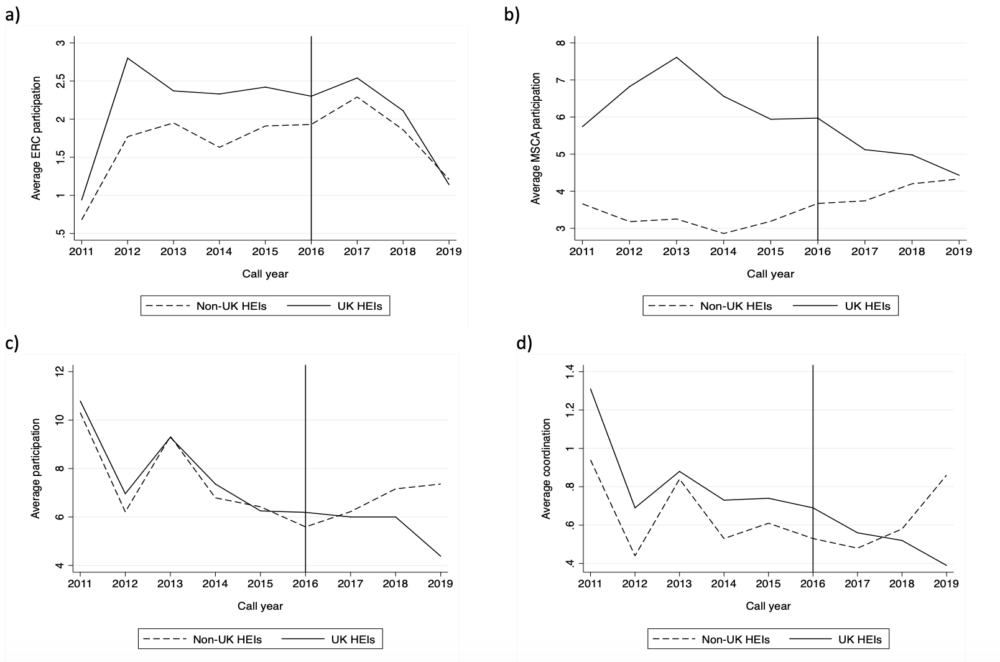While debates on the accessibility of the United Kingdom (UK) and non-EU countries to Horizon Europe are still ongoing, a research conducted by Marco Cavallaro and Benedetto Lepori (USI, Università della Svizzera Italiana) entitled Institutional barriers to participation in EU Framework Programs. Contrasting the Swiss and UK cases estimates the effects of access restrictions and uncertainty on the participation of Higher Education Institutions (HEIs) in H2020. In the paper which is going to be published on Scientometrics, Cavallaro and Lepori consider Switzerland’s 2014 reclassification to third-country status and the first effects of the Brexit vote.
They compare participation patterns of Swiss and UK HEIs with similar European HEIs in grants obtained from the European Research Council (ERC), the mobility-focused Marie Skłodowska Curie Actions (MSCAS), and standard collaborative projects. Data on the characteristics of HEIs and EU project participation were obtained from three RISIS datasets: the European Tertiary Education Register (RISIS-ETER), the CWTS Publication Database, and EUPRO.
The results show that the Brexit vote has more far-reaching consequences than the formal restrictions that affected Switzerland, although the UK kept its full access to H2020. UK HEIs are currently facing severe uncertainties, as foreseen complications related to EU researchers’ ability to access them, the enrollment of EU students, and subsequent financial difficulties add up to the possibility of EU funding restrictions in Horizon Europe.
The figures below illustrate the participation patterns of UK HEIs and a control group of European HEIs, before and after the Brexit vote. The Brexit-induced impact is particularly salient in the MSCAs (Fig. 1b) and the participation in and coordination of collaborative projects (Figs. 1c and d). Participations in ERC grants were however not influenced by the Brexit vote. The authors suggest that the relatively high reputation of UK HEIs has alleviated possible negative effects on ERC participation.
 Figure 1: Average UK and non-UK HEIs’ participation in ERC grants (a), MSCAs (b), collaborative projects (c) and coordination of collaborative projects (d) before and after the Brexit vote in 2016.
Figure 1: Average UK and non-UK HEIs’ participation in ERC grants (a), MSCAs (b), collaborative projects (c) and coordination of collaborative projects (d) before and after the Brexit vote in 2016.
In conclusion, the authors argue that a stable framework of participation and a clear ruling on relationships with the EU for what concerns people’s mobility and economic relationships are key to fostering the participation of non-EU countries.






